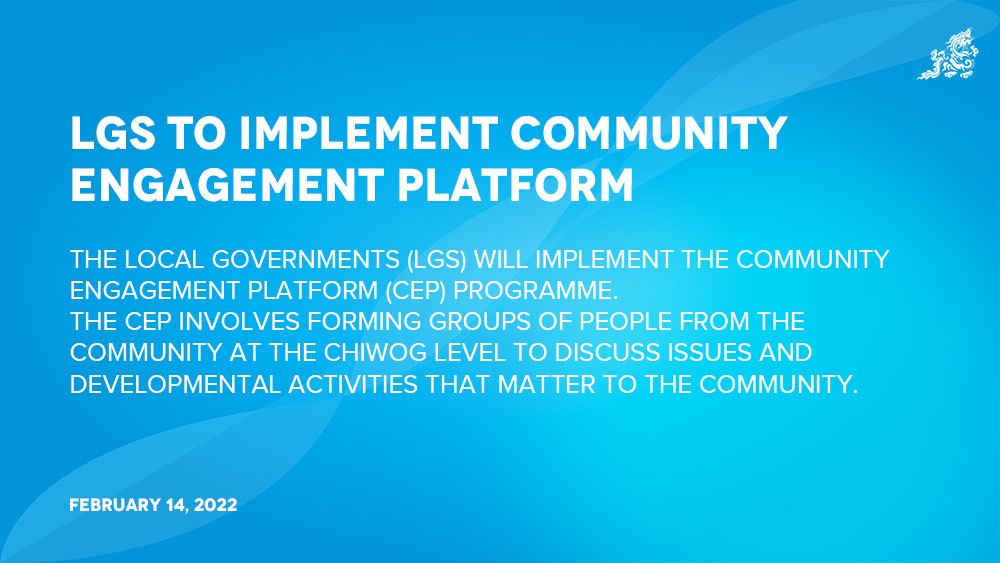MB Subba
The local governments (LGs) will implement the Community Engagement Platform (CEP) programme.
The CEP involves forming groups of people from the community at the chiwog level to discuss issues and developmental activities that matter to the community.
A few vocal and influential individuals often try to dominate discussions and influence the decision-making process at the local level, according to officials.
Officials said the formation of CEP groups is aimed at giving all members of the community an equal voice, and it is expected to improve participation of the community in the decision-making process at the local level.
The CEP is also aimed at improving community participation in developmental and social activities.
The CEP programme was piloted in Dagana, Punakha, and Mongar in 2021.
According to an official, the CEP will enhance local governance and decentralization.
Prime Minister Dr Lotay Tshering also stated that the CEP has positively impacted the chiwogs with increased community participation in the planning and decision-making processes and that it will be implemented across the country in the State of the Nation Report.
The programme is also aimed at addressing cross-cutting issues of environment, gender, social inclusion, and youth employment at the community level.
Officials familiar with the CEP said in pilot dzongkhags, the CEP has helped strengthen community vitality despite some challenges. More than one group (CEP) was formed in a chiwog in the piloted dzongkhags.
The CEP focal person in Mongar, Karma, said that the groups discussed multiple issues including development activities and social issues, and strengthened understanding and harmony in the community.
He said that the CEP also brings issues from the community to the attention of the local government through the coordinators of the groups.
“The dzongkhag administration helps the groups by providing training, and that the programme has been useful to the communities.”
The gewog administrative officer (GAO) of Drujegang in Dagana, Lhakpa Dorji, said that the CEP groups, which are formed on a voluntary basis, helped the local government in the decision-making process and with information dissemination.
“It’s difficult for the tshogpa alone to disseminate information to the people. The CEP group passes information to the community through their members,” he said.
He said that the CEP groups also bring development and social agenda through their coordinators to the LG.
A gup from Dagana said that the programme has helped strengthen community participation and ownership in development projects like the maintenance of farm roads and irrigation channels.
According to the government, chiwog zomdus will be formalised and institutionalised to increase transparency and people’s participation in the coming years.
According to the state of the nation report, a study has been carried out on how to enhance mobilisation of revenue at the local level by LGs as the decentralisation process pushes service delivery functions to the grassroots.
The rural revenue mobilisation study recommended developing a sustainable strategy for diversifying revenue sources. It also highlighted potential areas of revenue generation for the gewogs.
The study recommended the adoption of modern online systems to reduce the financial burden of the community centres, dzongkhags, gewogs, and private citizens.


